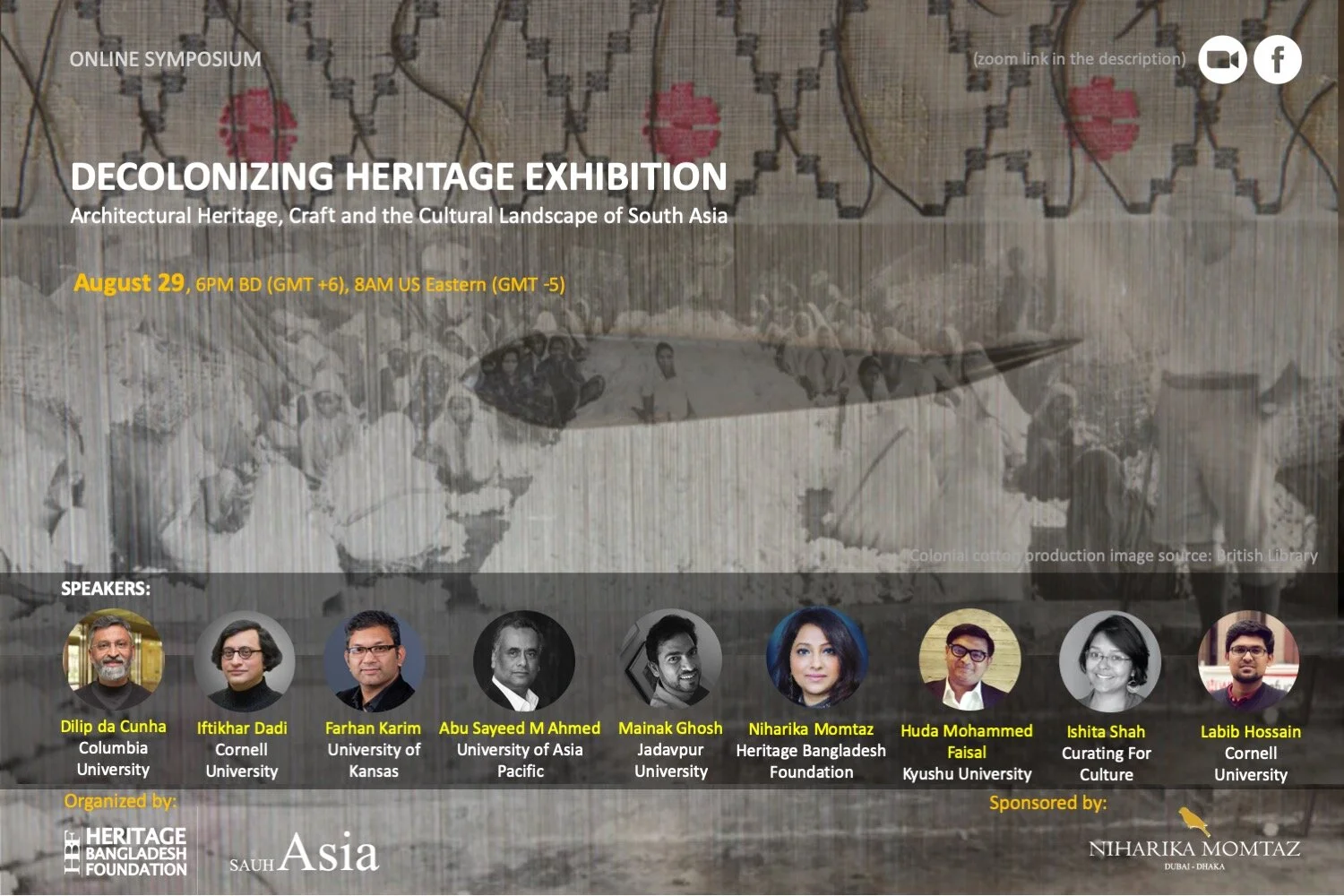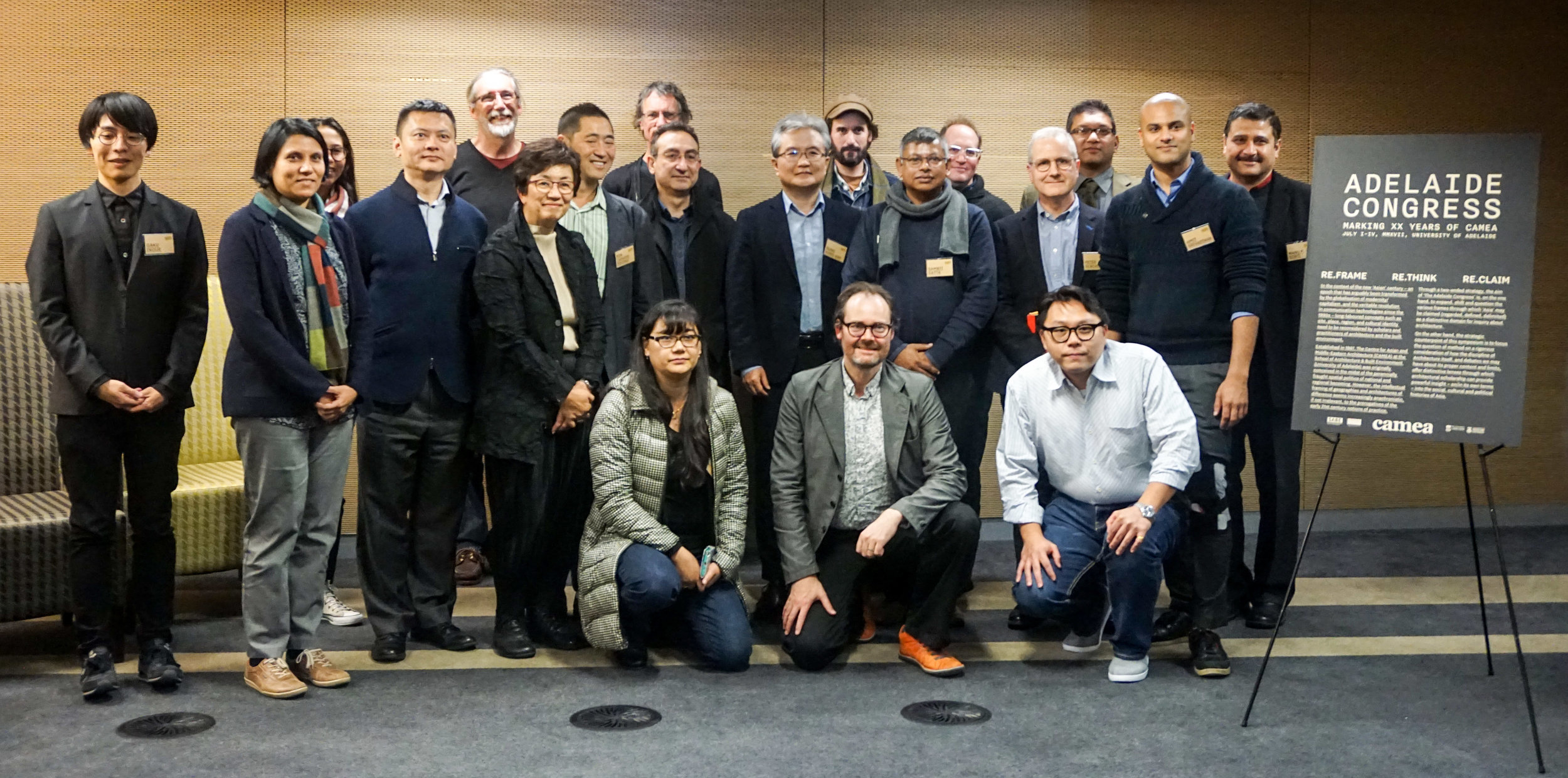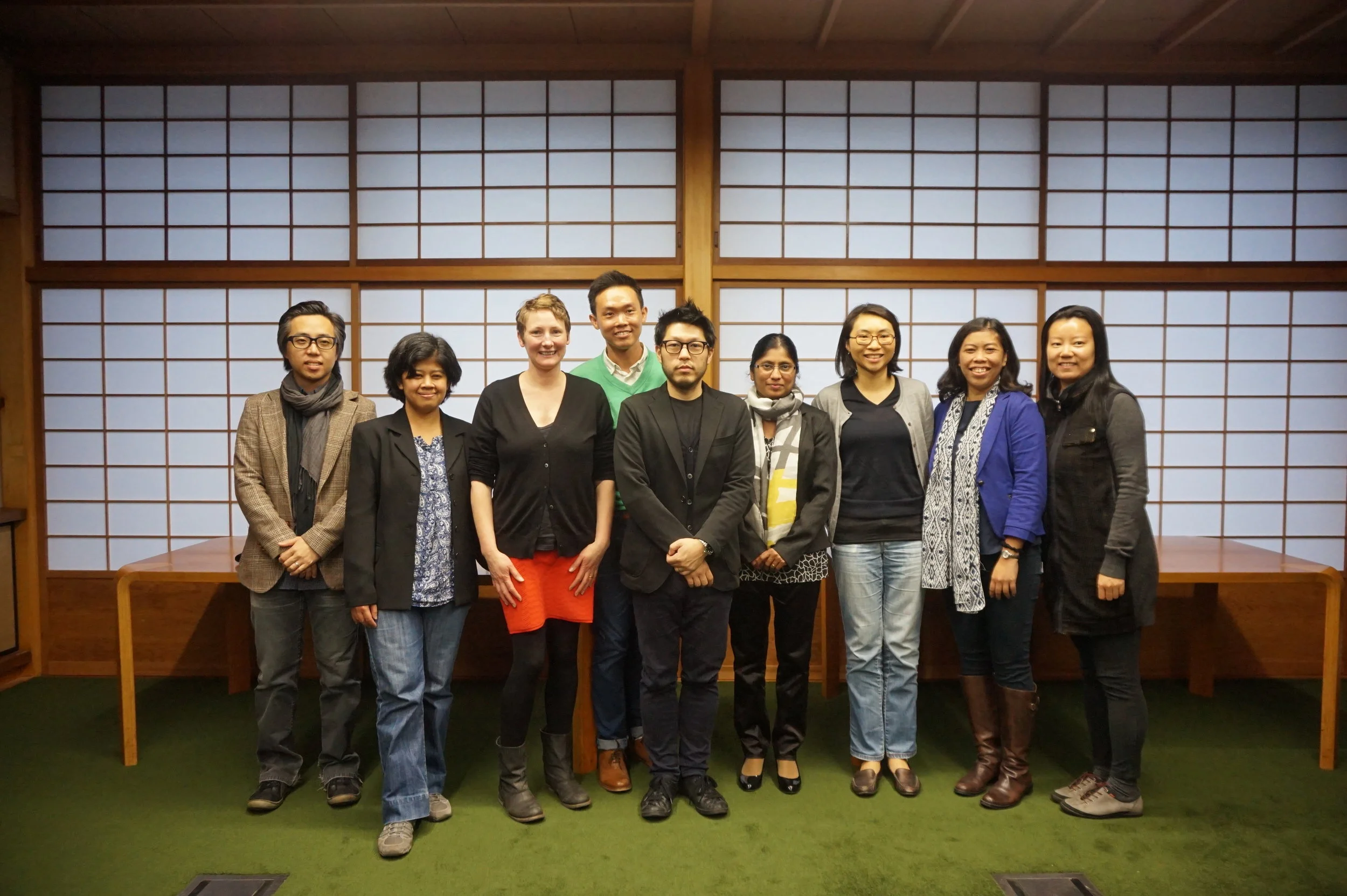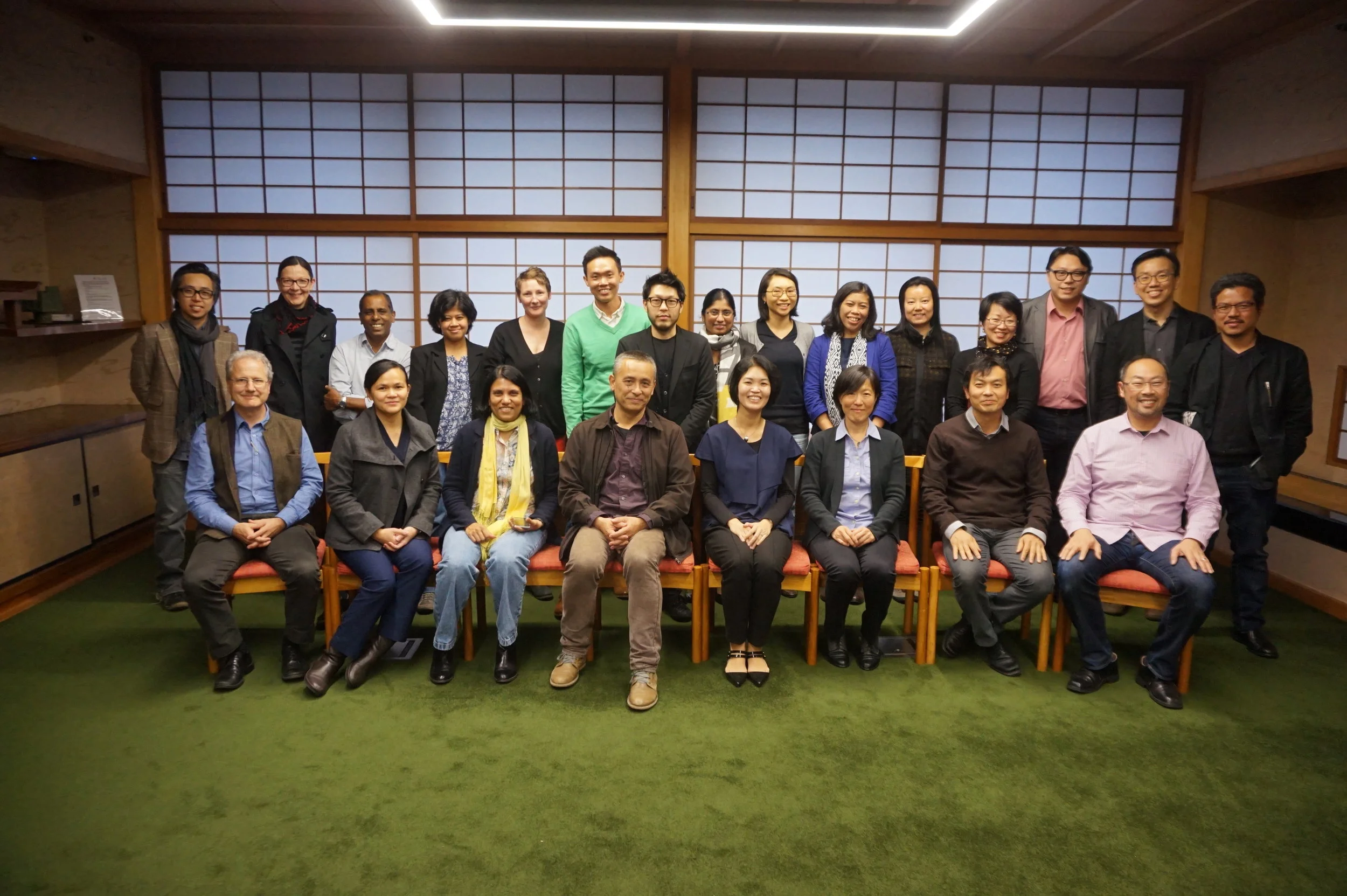Date and Time: August 29, 6:00 PM BD (GMT +6), 5:30 PM IST (GMT +5:30), 8:00 AM US Eastern (GMT -5)
Live Stream On Facebook : https://www.facebook.com/heritagebangladeshfoundation/
Overview:
Exhibition of cultural heritage has a deep-rooted history in the colonial period that goes back to the Great Exhibition in London in 1851, which was followed by several other world exhibitions in other parts of Europe as well as in the distant colonies. In thinking about heritage exhibition in the postcolonial contexts, these colonial exhibitions are invisible yet inevitable references that influence/shape our current day exhibition thinking. Museum is one such architectural product that facilitates exhibition in a particular manner. In the colonial context it stored and exhibited heritage items in the name of conservation and cosmopolitanism, whereas in the postcolonial context, museum and heritage work hand in hand in establishing the root of national identity. The continuity of exoticization remains through its emphasis on the visual aspects of the heritage object marginalizing crucial factors of its making process, its makers and associated politics. In discussing the topic of ‘decolonizing heritage exhibition’, these are some aspects that need to be critically questioned to initiate the process for alternative ways of heritage exhibition.
Schedule:
INTRODUCTION AND OPENING REMARK ON JAMDANI HERITAGE: 6:00 – 6:15 PM (BD TIME, GMT +6)
Niharika Momtaz, Founder of Heritage Bangladesh Foundation (Designer, Art Aficionado, Curator)
PANEL 1: DECOLONIZE EXHIBITING ART AND CRAFT/TEXTILE: 6:15 – 7:45 PM (BD TIME, GMT +6)
The Status of Tradition in Ananda Coomaraswamy’s writings on Ceylonese Crafts
Iftikhar Dadi, Associate Professor and Director of South Asia Program, Cornell University
Decolonizing the Exhibitionary Complex
Farhan Karim, Associate Professor, University of Kansas
Symbiosis of Creative Economy and Habitat: Traditional Textile of Salkuchi, Assam
Mainak Ghosh, Associate Professor, Department of Architecture, Jadavpur University, India
In Search of Authenticity: Cultural Heritage of Bangladesh
Huda Mohammed Faisal, Ph.D. Student, Kyushu University, Japan and Founder, REVIVAL
Moderator: Labib Hossain
PANEL 2: DECOLONIZE EXHIBITING ARCHITECTURAL HERITAGE AND CULTURAL LANDSCAPE: 7:45 – 9:15 PM (BD TIME, GMT +6)
Decolonizing the Ground of Heritage
Dilip da Cunha, Adjunct Professor, Columbia University
Looking Through and Looking At: Rethinking the Customary Display of Cultural Properties
Dr. Abu Sayeed M Ahmed, Dean, School of Environmental Sciences and Design, University of Asia Pacific
Community Engagement for Cultural Preservation
Ishita Shah, Independent Practitioner (Designer, Historian, Curator)
Colonial Representation of Muslin Weaving Practice and the Politics of its Marginalization
Labib Hossain, Ph.D. Candidate, Cornell University
Moderator: Farhan Karim
Organized by: Heritage Bangladesh Foundation (HBF) and in association with
The Society of Architectural and Urban Historians of Asia (SAUHA)
Sponsored by: Niharika Momtaz





